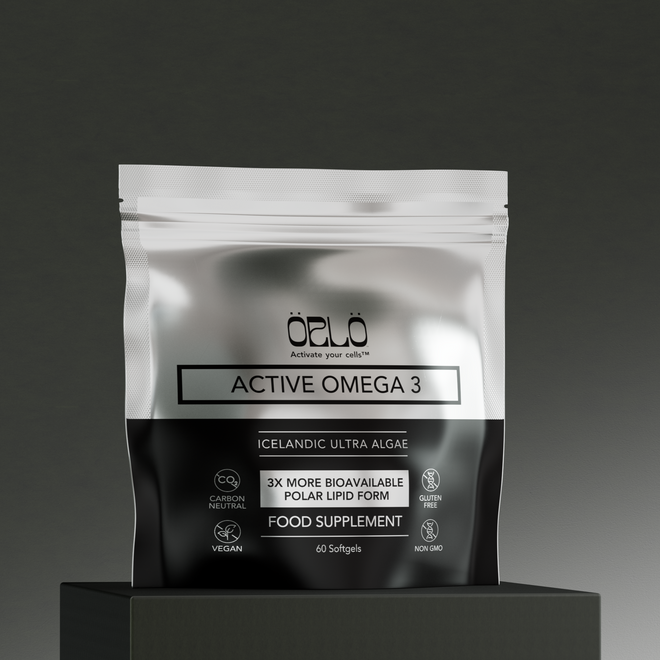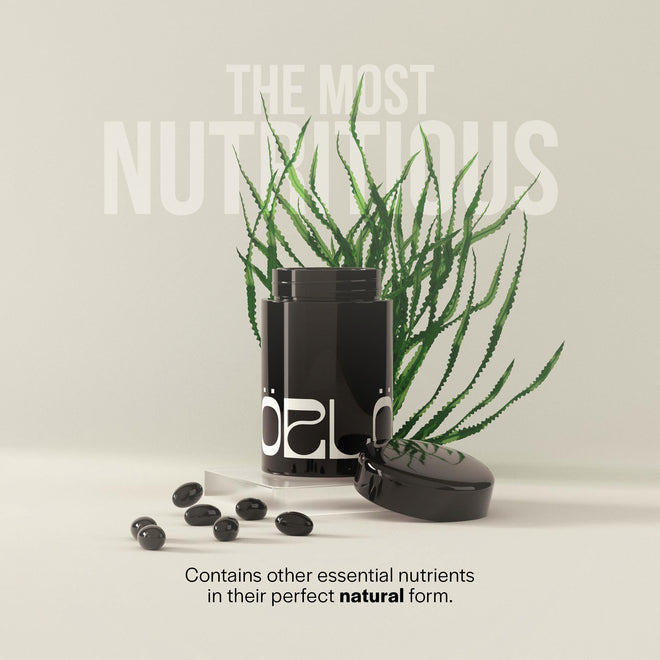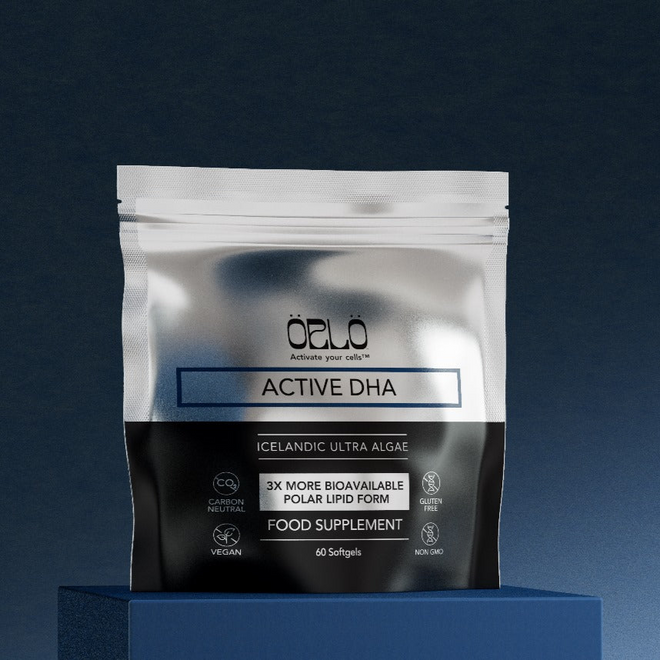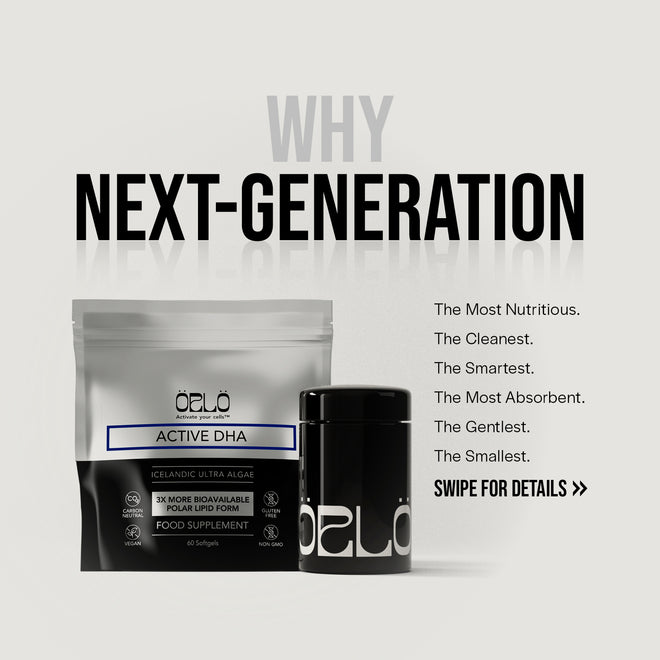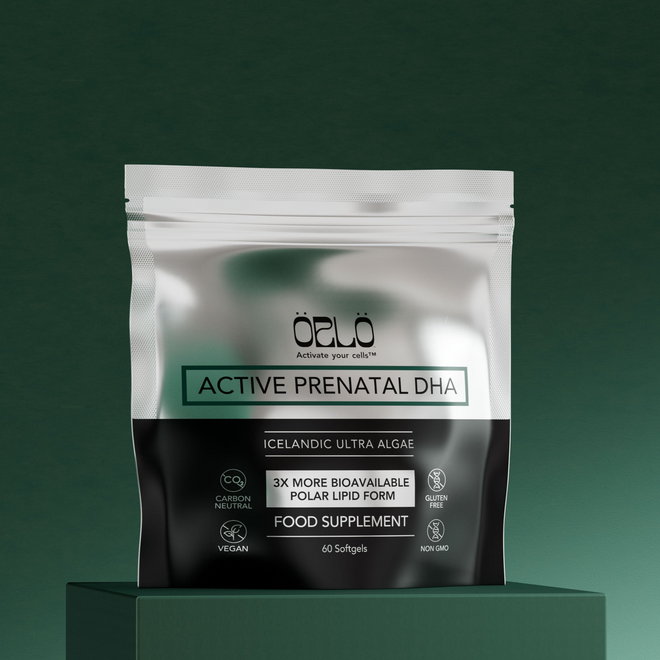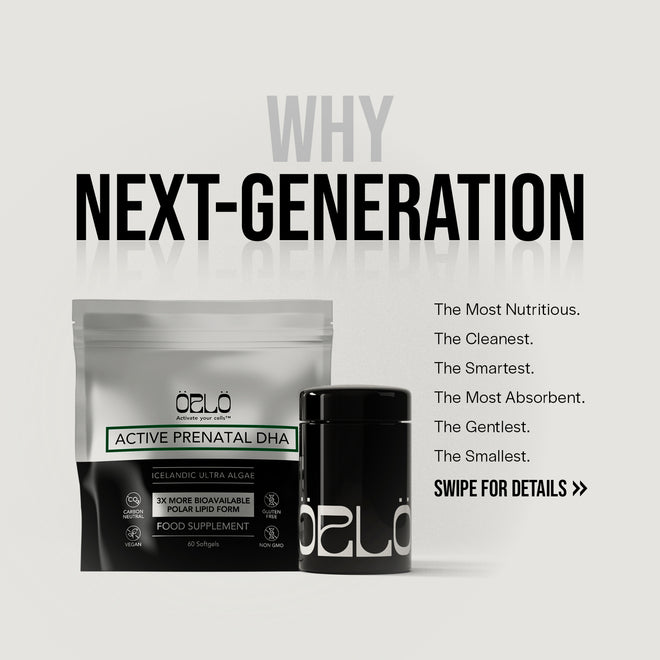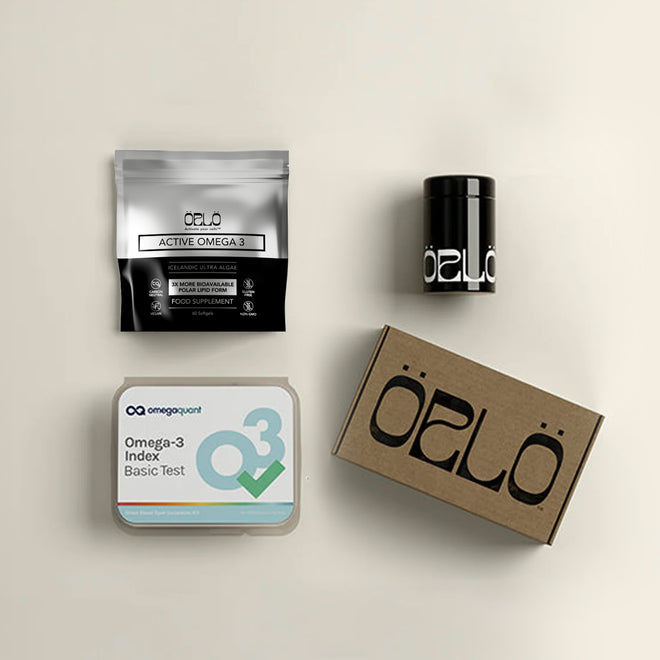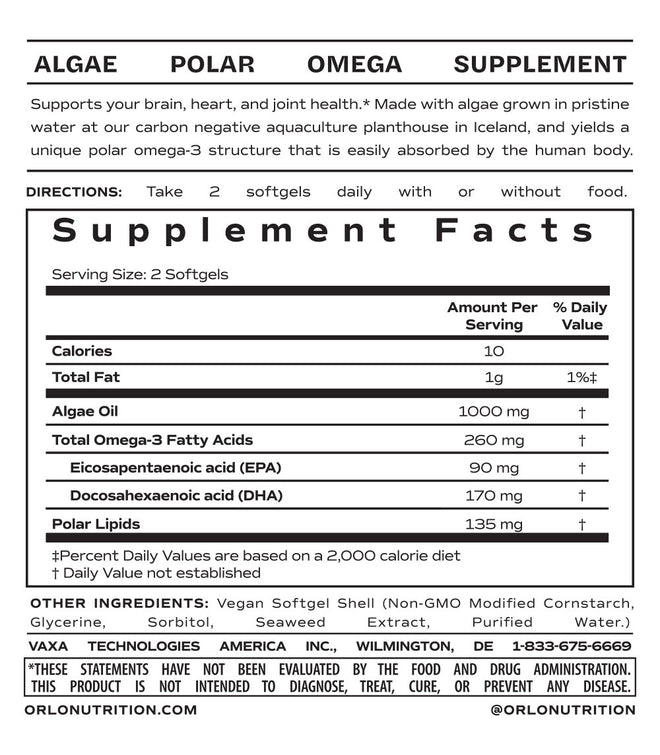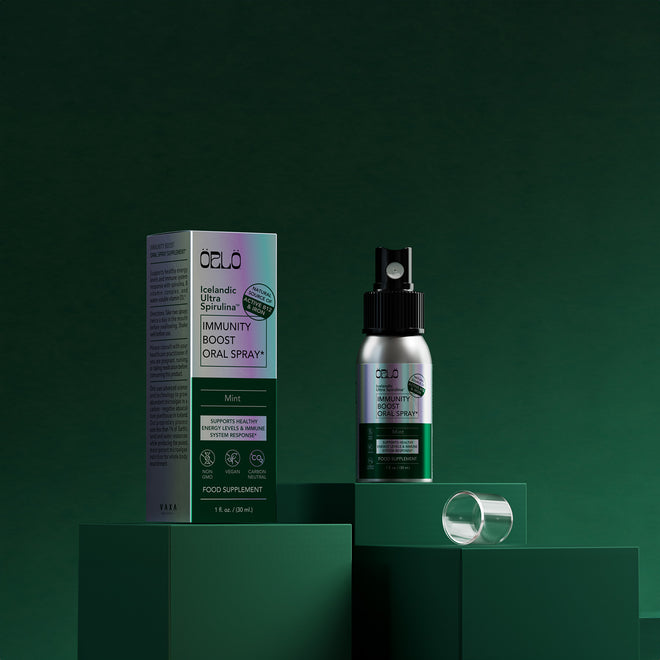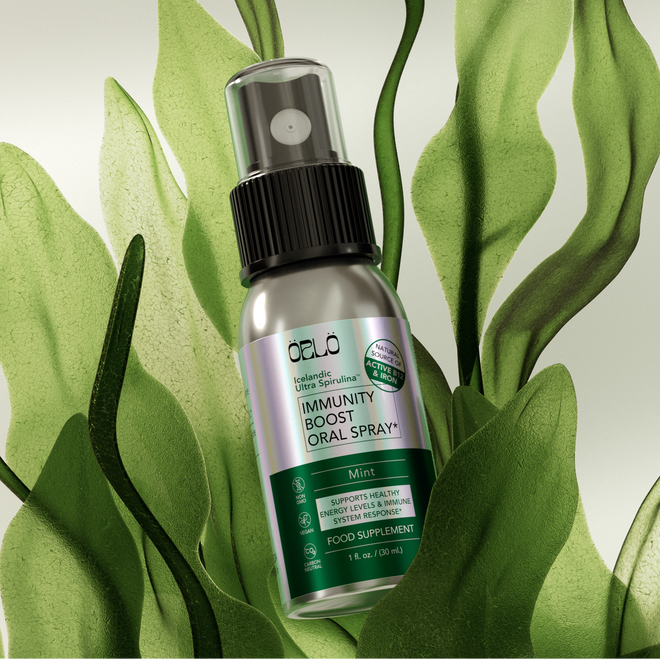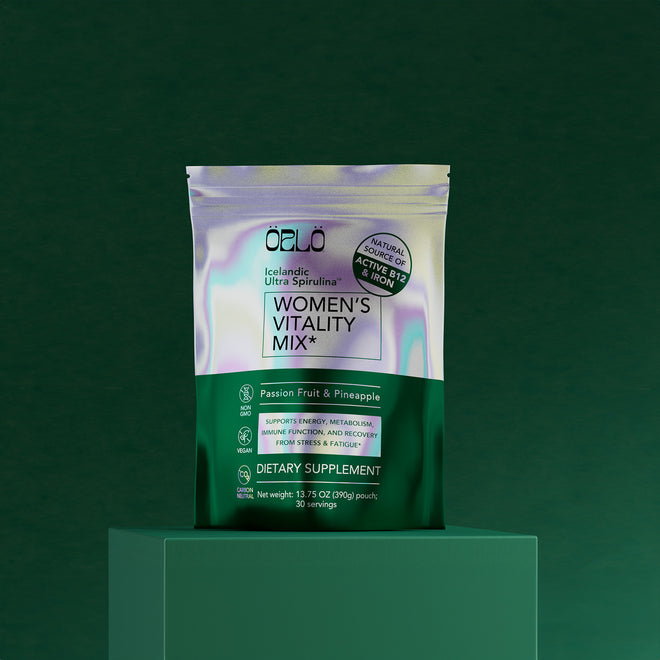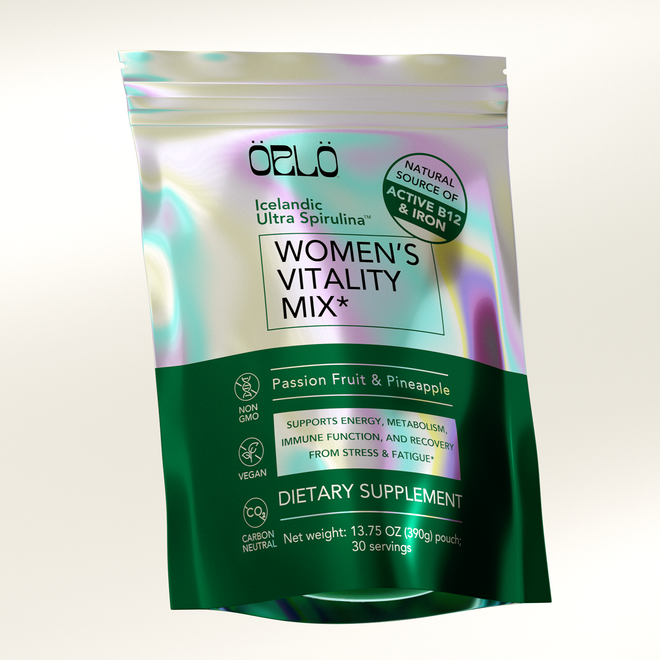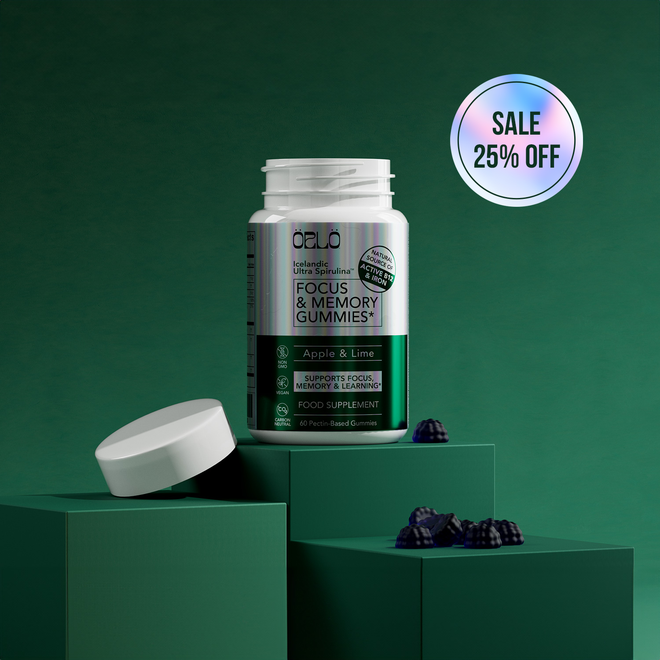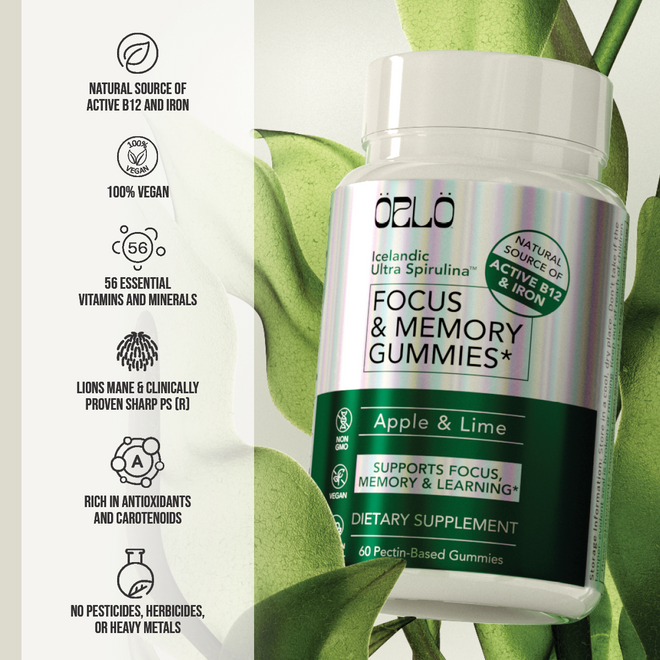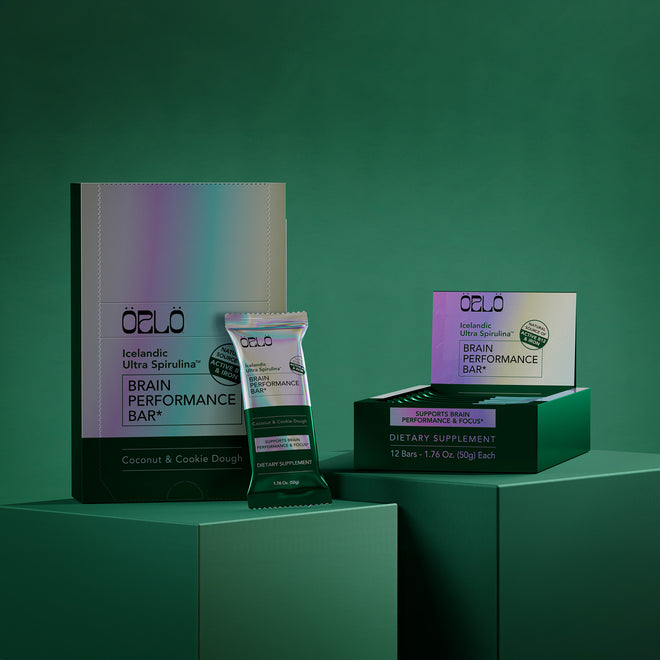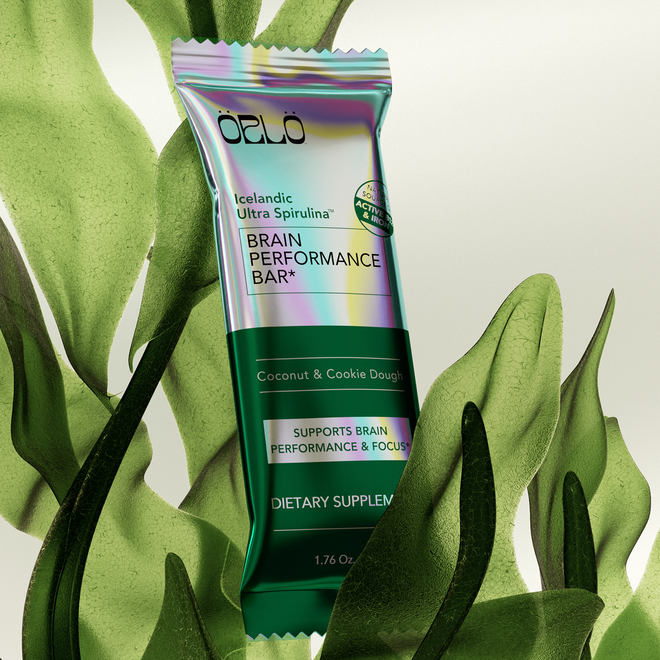25% Off - use code: HOLIDAYS
Confronting Challenges To Women's Health: From Stress To Inflammation To HPV With Dr. Doni Wilson
Watch the episode here
Despite all the health issues unique to women, there is still a noticeable information gap about women’s health. Many women find themselves in a place of misinformation or a lack of information when it comes to understanding their bodies. It is high time we take notice and fill this gap. Corinna Bellizzi welcomes back to the show Dr. Doni Wilson. Dr. Doni is a Naturopathic Doctor, certified professional midwife, certified nutrition specialist, and bestselling author of Master Your Stress, Reset Your Health. In this episode, she provides a great view of the many changes women experience in their bodies, especially the factors that impact women’s health. From stress to inflammation to HPV, Dr. Doni covers it all. So tune in to this important conversation as we bring awareness to women’s health and how we can be more resilient, healthier, and lead fuller lives.
Key takeaways from this episode:
- How stress impacts women’s health
- How to better understand postmenopausal health
- The importance of listening to our bodies
- How Omega-3 supports women’s health
- Women and cardiovascular health
- Confronting challenges with HPV
Guest Social Links:
Website: https://doctordoni.com
Instagram: https://instagram.com/drdoniwilson
Facebook: https://facebook.com/drdoniwilson
YouTube: https://youtube.com/c/doniwilsonND
---
Confronting Challenges To Women's Health: From Stress To Inflammation To HPV With Dr. Doni Wilson
As we close Women's Healthcare Month, I am once again joined by an expert in this arena and one you read as we wrapped up our coverage of stress. I'm thrilled to be joined by Dr. Doni Wilson. She is a naturopathic doctor, certified professional midwife, certified nutrition specialist, and so much more. She is also the bestselling author of Master Your Stress, Reset Your Health. For many years, she has helped thousands of patients overcome health challenges and achieve wellness by using specific strategies that address the whole body and ultimately resolve the underlying causes of distress.
Dr. Doni suffered from migraines for years and she dove deep into that story in our last episode. She helped to solve this problem and now helps women recover as well as many others, with her recovery protocol. She brings awareness to the impact of stress on our health and how it is possible to recover from things like burnout and become more resilient, healthier, and ultimately lead a fuller life.
You can find her blog podcast and it's called How Humans Heal, and her self-care program on DoctorDoni.com. Before I bring her on, I want to remind everyone that this show is offered for informational purposes only. If you have specific health conditions, you'll want to connect with your healthcare provider to ensure that you get the right treatment for you. I'm thrilled to be joined by Dr. Doni. Here we go. Welcome to the show.
It’s good to see you.
It's good to have you again. In our last interview, we dove deep into the topic of stress and we touched on its impacts and women's health because how could it not? It impacts all of our health. I’m thrilled to have you back. That's where we should start. How does stress impact women's health specifically?
When I think about stress, it's not just psycho-emotional stress. There's definitely psycho-emotional stress for all of us as humans, and some of us also experienced traumatic experiences early in our life and even in adulthood. There is psycho-emotional stress as a factor, but there's also physical stress as a factor, whether that's from an injury, infection, or even toxin exposure. When I reference stress, I'm looking at all the things we're exposed to as humans in our lifetime and even from our parents' exposure to stress.
The thing we know for sure is it's not about having zero stress. First of all, we're going to have stress exposure and we have a built-in stress response that we need. We want our bodies to have a healthy response to stress and then a healthy recovery from stress. The issue is when we're not getting enough of what I call anti-tress.
If we're not getting enough recovery from stress, then we start to see the effects of stress on our bodies and health. What happens is, even if we look at it from the stress hormones, cortisol, and adrenaline, and adrenaline is a neurotransmitter. The cortisol adrenaline is what helps us when we have a stress response in order to protect ourselves and get out of danger.
When cortisone adrenaline comes back to optimal healthy functioning levels, they help us through the day with our daily activities and functioning. Having optimal cortisone adrenaline levels is essential for our health because it's when they become either too high or low, if they get stuck too high or too low, they're not coming back to optimal.
When that happens, then it can affect women's health because it does affect ovarian function, especially that's one of the main differences for women. We have ovaries. If you're menstruating, they're going to be ovulating and making estrogen and progesterone in a regular cycle unless you're on a birth control pill or some other form of medication that is inhibiting the ovaries.
In a naturally functioning ovary, it's going to be making estrogen, progesterone, and testosterone, having ovulation, and creating a menstrual cycle. When we're under stress and not getting stress recovery, and our cortisol and adrenaline levels are out of balance, then the ovaries get a message to decrease their functioning to not be ovulating and making hormones as efficiently and effectively. One of the main ways that stress affects us as women is the effect on our ovaries.
Ultimately, we're a whole-body system. We're not just the ovaries. Stress affects us on many different levels in our digestion, microbiome, our gut biome, and our vaginal biome, other hormones in our body, like the thyroid and insulin. Stress affects our neurotransmitters like serotonin. It affects our immune system, and because stress affects all these other systems and all of those other systems also communicate with our ovaries, it has to do with women's health. Ultimately, there are many possible ways that stress could affect us as women because it affects all of these essential systems in our bodies.
How is that different than how it might affect a man?
It can affect a man's digestion and hormone production, like testosterone production for men. It can affect their immune system and nervous system. All of that is the same. Those aspects of it can be similar. The main difference is that men are going to see more likely changes in their testosterone production, whereas, for women, it's going to be changes in estrogen, progesterone, and testosterone production.
Many men think women are a little bit more complicated.
It's a different body, hormones, and levels. Men also have some estrogen metabolism going on. It might be complex. There's some complexity to it. Women's bodies have this amazing ability to sync with nature. It’s like a different plant. We were in nature, “Here's this one plant that responds in this way to stress.” The woman's body is like another plant that responds in a different way to stress exposure.
I was thinking about this in preparation for this interview. Initially, I thought, “Women go through two major hormone shifts in their life, puberty and menopause,” but that's also not true because many of us get pregnant. There are massive hormonal shifts that happen during pregnancy, after pregnancy, and during breastfeeding. If we are procreating, we have a moving target for how our homelands are balanced.
That's part of why women's health issues are also unique. We experience our bodies in a different way. We have a monthly cycle that changes our nutrition balance because we lose blood, iron, and other nutrients with that. That also benefits things like heart health because we're losing some of the excessive nutrients that we might build up as men. As we talk about this, help us understand this one comment that Dr. Bill Harris made. He said, “There are three factors that we can't control for. You can control nutrition, diet, lifestyle, all the stress that you experience, and everything else, but you can't control your sex, age, or genetics when it comes down to it.”
I'm curious if we take that lens and understand that something like the health challenges we run into later in life, like heart disease, the onset of early dementia, or things along these lines that can be complicated and challenging to tackle, but also which seem to come on later in life. We understand that as women, we have a number one death cause of heart issues, too, cardiovascular health issues. We see these things as silent.
There's this perception that women generally have that a heart attack or heart health is more of a men's issue. We don't tend to discover that that's not the case until either someone in our immediate circle has a heart health issue or we have now finished menopause, and our doctor brings it up. The big question is how do we better prepare ourselves for these moments in life and how do we understand our post-menopausal health versus what led up to that moment?
There is so much in that. If we look at a whole woman's lifespan, there is so much we could get curious about and want to understand. I love that you're bringing attention to it because so much of the time, we race through the day. We even aren't even thinking, “I'm in a woman's body. What kind of transitions is my body going through?”
A lot of times, we are even critical that there can be a lot of criticism of, “What is my body doing? Why are my hormones changing? Why do I feel this way? Why didn't I realize this?” A lot of times, women find themselves in a place of either misinformation, lack of information, or lack of understanding of their bodies. I'm glad to be able to talk it through. I would even start by being like, “You're living in a human female body. What does that mean?”
That means we're going to have some changes in our hormones and in potentially at different rhythms and times than male humans. Someone who has higher testosterone is going to have different patterns or someone who might be on hormone replacement or birth control of some sort. It's going to influence not just the menstrual cycle but it's going to influence our energy levels, mood, sleep, the way we feel in our body, and our focus.
With women's health, we think that it's only about the menstrual cycle. No, it’s those hormones. For example, estrogen affects us everywhere. How many women go through pregnancy and postpartum, or you are on your post-menopause and they're like, “This estrogen is not paying attention to my menstrual cycle. This estrogen is taking over my brain, sleep, and joints.” Realize that these hormones are not just menstrual-related. These hormones affect us everywhere.
The more we can embrace our hormones, what it is to have transitions in our hormones, and that reality helps us to already become more aware of things like heart disease risk. The more we can be aware of our bodies, we start to go, “How do I take care of myself now?” whatever now is for the readers. How do you start taking care of yourself now in order to either prevent or reverse heart disease risk, dementia risk, bone loss, diabetes, cancer, you name it?
There are things we can do. I want people to know, you can start at any point in time, whether you are 30 or 70 years old. There is so much you can do to reverse either something that already exists or prevent it. That's where I come at it from women's health. Let's understand your body and what we can do to support it because when we give our bodies what they need to function at their best, to me, that's our best way to prevent all different health issues.
It's complicated and complex. I also want to help us get to a space where we understand what resources might be available. For instance, you treat a lot of women. You help them on their health journeys in pre and post-menopausal. I'm sure, with puberty as well. I'd like to understand what types of things that you're helping them with and how much of it is directed at diet versus lifestyle if you were to put them in two buckets on a balanced scale.
To me, it's got to be both. A lot of times, we start with a diet, even to realize, “What I'm eating has an effect on my ovary function in my hormone levels.” Even postmenopausally, what we eat is going to affect our risk of various health issues. A diet is a common place I start. To me, balancing blood sugar levels is important. I'm always looking for, “What are the changes we can make that are going to have the biggest positive ripple effect?” Of all the possible things you could do, I'm going to go for what it is that you could do that has the most positive influence on your overall health.
That's why right away, I think of blood sugar balancing because many of us are reaching for carbs, snacking on carbs, or going too long between meals. I'm noticing those blood sugar fluctuations or especially postmenopausally noticing blood sugar levels that are too high, as very common for women after menopause to have insulin function go down and blood sugar go up. That's also an issue for younger women too. Starting with how we balance our blood sugar by reducing sugar, eating the right amount of carbs we need and not too much, and making sure we get enough protein and fat.
I'm laughing because I am reflecting on my personal journey every time I come through my monthly cycle. I should have known because I'm always hungry the day before I start my period. I want dark chocolate. I will go through months and upon months without registering that moment until it's after the fact like, “I started my period. No wonder I wanted brownies and lots of food.” I was insatiable.
I'm sure that part of it relates to my hormone fluctuation, but I don't tend to eat a lot of processed sugar. I wonder, in a way, what could be causing these massive cravings before I start my period given that I don't have a lot of other symptoms. I don't tend to get cramping. I might get a little bloated. I don't have a lot of the other telltale signs that many women experience before they menstruate.
There are different thoughts on that. One is that chocolate contains a good amount of magnesium. At that time of the month, our body has a very high need for magnesium because the same enzyme that metabolizes estrogen also metabolizes adrenaline. We need more magnesium for methylation and COMT metabolism. Sometimes you might be like, “Maybe I need some more magnesium.” You have a little magnesium with your chocolate.
That's one possibility. It's very common to have sugar cravings when we have fluctuations in estrogen and progesterone. The chocolate comes with some sugar in the form of a brownie. Usually, they have sugared it more than usual. Some of those hormonal fluctuations can affect our cravings and even our blood sugar levels. The more you become aware of it, you start to put it together. You're like, “If I start craving brownies, probably it's because my period's coming.” You might then be prepared with, “Let me get some dark chocolate that doesn't have sugar,” because sometimes that'll satisfy that craving without having a whole cake.
What I also notice, and I don't know if you suffer from this too, but anytime I'm starting to feel under the weather, I want to get into the kitchen and start cooking. It's something that I come back to. If I start to feel like, “I want to make a stew.” I tend to also go to my supplement cabinet and say, “Maybe it's time for some immune-boosting supplements.” In the case of Örlö, I'm reaching for Immunity Boost and even some basic vitamin C. I use some liposomal vitamin C. I might grab my multivitamin that I perhaps forgot to take for a couple of days to cover that baseline.
The real root or thing that I try to impart to people is that you listen to your body and learn to listen to your habits because sometimes those habits are in place to get you to reset. In my case, perhaps why I gravitate towards resetting in the kitchen because it also is calming for me to cook. If I'm starting to feel under the weather or overstressed, it makes sense for me that I go to the kitchen because that's something I did with my mother growing up and there's some joy in it. There's some nesting behavior in that.
If we allow ourselves, our intuition, and what naturally comes to us, oftentimes there is a reason behind it that's helpful for us. I do think we can have behaviors that are going to help our body, encouraging us to do things that are going to be helpful. The more we're aligned with ourselves and listening to our intuition, the more likely that'll happen for you. That's wonderful.
What other signs can we learn to listen for in our bodies?
I encourage people to look at five daily check-ins. I look for, “How's your energy level? Is your energy lower than usual? Are you feeling like you're dragging and you need a nap more likely? Are you feeling energized and focused?” The second one is to focus. How well are you getting through your daily tasks? Are you feeling brain fog or you're like, “I'm like making it through my to-do list?” How is your sleep? Are you going to sleep and sleeping through? Are you waking up?
Sleep can be a real good way for us to get information from our bodies. Also, your body, in general, are you getting hard palpitation, pains, shaking, or any kind of symptoms you get in your body? The fifth one is your mood. Are you feeling more anxious or low mood? How's your mood? I like to check in those five areas. I find that helps us to get a sense of like, “What is my body trying to tell me here?”
I have a daily practice that I find immensely helpful, and I'll share it with the audience here. I love to stretch in the morning, lying flat on my back in bed, and feel as tall as I can feel. I move my arms out and legs down. I'll feel the little pops in some of my joints as I do this, then I run through a mental check as I work my consciousness up my body from my toes to my head.
I find that when I do that, it's both centering. I'm checking in with myself, and it doesn't take more than a couple of minutes. It's just part of my wake-up. It's interesting because I interviewed a while back, Tina Muir, who's a marathoner. She's a former elite athlete who competed for the UK. She does these together runs where she will spend an hour running and doing a multi-mile run.
She's talking to you while she's running. She is a jogger that's running alongside her if she was going out with a friend. This is something she started doing during the pandemic. She has people do a check-in with nature and touch the ground, the leaf, and do something like that, then check in with their bodies as they're moving.
I go, “Do you feel stiff? How's your head? Are you feeling stiffness throughout your body? Here's what I'm experiencing. How about you?” It leaves a space of time for them to think about that. To me, those two things are very similar. It's a different approach, but I offer them because women can take this as an example and say, “How does that feel natural to me?”
It doesn't even have to take very long to be like, “What am I noticing? What am I feeling?” Otherwise, we tend to race through the day, paying attention to 1 million other things and everyone else besides ourselves. Sometimes when you start to listen to your body signals, there's a level of acceptance and compassion that comes with it. Now you're not listening in a judgmental way. You're listening in a compassionate way, “There's a symptom. That means I'm going to be loving and supportive of myself and figure out what I need to address that. I'm not judgmental and critical of myself.”
There is a level of acceptance and compassion that comes with listening to your body signals.
It gives us a chance to change our conversation with ourselves and to be a support to ourselves. No matter what else is going on, you know you are there to be the one who says to yourself, “How are you? What do you need?” You can count on yourself to do that. You start to build this confidence and trust in that relationship with yourself.
Another tip I like to share came from my massage therapist. I have a tendency because I work at the computer all day. Your arms are out in front of you. When you're cooking food or driving, your arms are out in front of you. We spend much of our day with our arms out in front of you. I also have breasts. That's pulling on my shoulders. That's out in front of me. She tells me, “Every time you walk through a doorway at home, but let your hands go to the frame of it and let yourself lean forward and stretch across your body that way.” Understand you don't have to do this in public. It might be weird there,
What this practice did for me was help to relieve tension, which sounded counterintuitive, but right along my scapula because that's where I would hold all these knots from having my arms out in front of me all day long. This simple practice improved my overall muscle health from my neck down through my shoulders. The other thing I noticed is that lifting weights, and this was feedback from my massage therapist. She's like, "You're not holding tension the same way you do,” because I do hold tension in my shoulders.
I noted that I had been working on doing assisted pull-ups at the gym. What's happening is just because I'm pulling myself up and I'm using these muscles, it's almost like that is relieving the tension that is held there because the scapula has to move over the muscles, and I'm exercising the muscles. Even just paying attention to where your body might be holding tension and then looking at what your physical activity is to support that, it's not like I was doing a full pull-up. I'm doing an assisted pull-up. I can't lift all my weight with my arms. I've never been able to do that. There are machines at the gym that can help with that. It's improved my posture, which has improved my overall health.
In emphasizing, you can start in small increments. You don't just say, “I can't do a pull-up. I give up.” How do we relax the muscles that have been decompensated and then retrain them into doing healthy functioning?” I call them these ones back here the computer muscles, and then up in here are the phone muscles. We're constantly looking down at our phones and it uses all these neck muscles. This is the common place to get tight, whether it's massage or different forms of body therapy, Myofascial release. There are different forms of physical therapy. They can help you release these muscles. One of my favorites is acupuncture with electrical stimulation to help release the muscles that have been like they don't give up because we are using them too much.
Having someone like a trainer or someone who can give you gradual gentle strengthening so that you can get those muscles working for you again. By doing that, you're way less likely to experience injuries. I learned the hard way. I injured my shoulder because I was like, “I can do it.” I was blowing leaves in the yard and my shoulder was like, “We can't do this.”
It took me months to recover. I'm like, “I want to retrain my shoulders so that if I do need to lift something, even if it's groceries at the store, I don't want to end up injured.” As women, we can learn, “How do I create core strength, joint strength, and muscle strength?” It's not like you have to be committing your whole day and going extreme with that either. There are ways to do it in small increments that can make a big difference in your health.

We talked for a moment about magnesium. As it stands in your book, you write about healthy fat supporting your health. Given that we have Örlö as the presenter of this show, I know that you received a package. I'd love for you to talk for a moment about how Omega-3s overall support women's health.
I don't know how many readers this is true for, but when I was originally trained as a nutritionist back in the ‘90s, it was like you're trying to avoid fat. It was such a contradiction to me because I was also learning about essential fats, which are what these Omega-3s or essential fats that we have to get from our diet. Was this conflict like, “Fats are bad, and yet these fats are good? How are we supposed to reconcile that?” I find it many people are very confused about that. I let a whole group through a detox program.
I was encouraging them, “You have these healthy fats in your diet.” They were like, “Is that going to be okay?” Sometimes people are worried. To start to normalize that fats are good for us, every cell in our body, the cell wall, is made of fat. The nervous system needs fats. We need fats everywhere. Even our hormones are made from fats. Estrogen and progesterone are made from fat. If we don't have enough fat in our diet, it's going to affect our ovarian function, nervous system, and aging.
We're much more likely to have signs of aging in our skin and have skin issues if we don't have enough fat. I feel like I'm always putting that right in for people like, “First of all, let's make sure you have healthy fats in your diet, things like olive oil and avocado oil. Eat avocados and olives. Have these healthy fats and, at the same time, take Omega-3 supplements. You can also have healthy fish in your diet if you can get wild salmon and healthy wild fish do that. Probably you're not going to be eating that every day or some of you might be plant-based. You might be like, ‘How can I get Omega-3s?’ You can get Omega-3s in a supplement. That way, you're covered because they are essential for our functioning.”
This is something that we talked about with Bill Harris about getting to that optimal level of 8% Omega-3 in your cell walls. Those are EPA, DHA, and other downstream Omega-3s that are critical for cellular function, ATP energy production, and more. During that episode, he asked me to go ahead and take the test that we're offering to our entire customer base. If they want to come on as a new subscriber, they can get a free omega quant blood spot test.
They can just put their finger, send their sample in, register it online, go ahead, and get the full panel of what their Omega-3s are. I got my results. They were in French, which wasn't a problem for me. The team over there is correcting that as we speak now, but I speak French. I looked at my result. Lo and behold, I thought, “Maybe I'll be high 6 or 7.” I've been transitioning away from the consumption of fish. I've been working to get more of my omegas from plant sources and at the same time, trying to ensure that I'm consistent with my consumption of Örlö’s Omega-3s. My results are in. Any care to guess what they are?
Maybe medium. Did it surprise you?
I was medium and 6.37%, which is less than ideal, but it's not low that I'm concerned. What this means is that I'm going to increase my dosage of Örlös Omega-3s by one soft gel a day. I'll go from 2 to 3 a day. I'm still going to work to consume walnuts every day because I put a handful of them in my smoothie. I consume some flax seeds or chia seeds. I like to make chia seed pudding. These all have healthy Omega-3s in them. At the same time, I'm careful not to consume any trans fats at all, which means I do not consume fried foods. I do not eat packaged bars that say anything like partially hydrogenated or fully hydrogenated oil in them, even if they claim to have zero trans fats because those are trans fats.
It means that I'm very careful about what I do eat when I eat out. I can continue on this journey. I'm fairly confident that with one more soft gel of our Omega-3 or DHA every day that I will get back up to that 8%. You have to think, I was consuming fatty fish twice a week for a long time before. Having stopped doing that means that those stores are now not in my system. I have to think of better ways to start to get myself back up to what is optimal. We know that at 8%, which is optimal, all-cause mortality drops. That's the reason you want to get there and that we are initiating this whole campaign to help people.
They can take their baseline test and see exactly where they are and then got a test again four months later and see where they are. I'm at a new baseline because I stopped eating fish. Each of these tests retails for $50. We're giving our new subscribers a $100 test for free. This test also isn't exorbitantly expensive so you can't go do it yourself if you want to. This is a subject I touched on with Dr. Sauer. He's a chiropractor. We were talking about the fact that many of these tests can be quite expensive but sometimes, when you go direct yourself, it's less, which is mind-blowing.
You can get direct. You don't need to have a practitioner.
I'm not saying practitioners like yourself. I'm more talking about through insurance. For instance, when I try to go through my insurance for an Omega-3 panel, my insurance doesn't cover it and I'm not sure why but they don't. The lab, because they touch it and they probably use somebody like Omega quant methods, they charge $100. It's double the price if I went direct.
Sometimes you need to be an advocate for your own health in this way and do a little bit of research or get a quote when you're looking at getting tested. There are three tests that I go direct for and that's vitamin D ferritin because I check my iron levels every once in a while. That's also because I'm not eating red meat. I check my ferritin levels, omegas, and vitamin D. I usually pay for those about twice a year outside of what I do in my annual. I'm curious about what you test routinely and yourself.
Those are good. I like to check ferritin on patients because it's often not tested. A lot of times, practitioners are only doing a CBC. If the person doesn't have to have anemia and they might still have low iron storage, I like to check ferritin at least once a year on vitamin D because it's a test that we can get done in blood work and often is covered by insurance. Might as well do these tests so you know, because otherwise, a lot of people are not getting enough vitamin D and they don't even realize it.
Those are essential tests. I have a whole list of tests I give patients that you can usually get from a regular lab and are covered by insurance. I feel like those would be essentials. To know that it's not going to give you everything, you could have completely normal blood work and still, there could be something going on that's not showing because we can't find everything in standard blood work or even in a regular lab.
Have you ever tested your Omega-3 levels?
It was a few years ago, but I have. It wasn't too bad. Luckily, I'm with you. I moderate or a little better than moderate. I'd rather have information because then you can be precise, then you can say, “I need one more pill per day.” Otherwise, we're in the dark and we're guessing. It's like throwing noodles and spaghetti at the wall. Do you want a general spaghetti at the wall or do you want to have a dark board and aim for the middle of the dark board?
If you understand that vegetarians and vegans routinely are coming up at 3.5%, I've been moving more towards plant-based and I'm still at 6.37. That tells me my supplement's working. It's hard to be vegan. I know that a lot of people are walking that path to be more plant-based. They face the same struggles, “You have to make sure you're getting vitamin B12 or iron, especially if you're still menstruating. Iron helps you build strong bones. It's not just for your blood.”
There are all these things that you have to consider. I don't do organ meats at all. The animal-based meat doctors out there are saying things like organ meats for vitality, especially if you have hypothyroidism, which I have, you should go on a carnivore diet. It’s the polar opposite of what I want to do. I'm curious to know what your opinions are about some of these more extreme diets as they relate to women's health.
You reminded me of the couple of other blood tests that I always recommend people do, especially if you have a more plant-based diet. I recommend this to everybody every year. Check homocysteine and methylmalonic acid because when you measure B12 and folate in the blood, it shows what's floating through the bloodstream. It's not showing us how well you metabolize and what your needs are for B12 and folate. I encourage people not to just go by a B12 and folate level in the blood. To me, those are pretty much useless tests. I would want to see homocysteine which is part of the methylation cycle. It gives us a much better sense of you need more B6, B9, and B12. The methylmalonic acid tells us if you need more B12.

When I work with patients who are either vegetarian, vegan or highly plant-based, I'm like, “Let's make sure you're getting enough of these nutrients.” I have patients who are fully plant-based. It's possible to get the right nutrients, enough fats, and enough healthy protein, but it does take more of a concerted effort. You have to be more aware of which foods you are choosing in order to get those nutrients.
If you're not getting those nutrients in your diet, take supplements to add them in and then monitor to make sure you're getting the right amount of those supplements to maintain those levels. As healthy as it is to eat plant-based, we have to know that it's sometimes harder to maintain some of these nutrients. We have to be aware, more intentional, and careful about that.
When we're talking about these plant-based issues, the common deficiencies, Omega-3s, which we discussed, and vitamin B12, you mentioned all these homocysteine levels, which also impact your heart health. We need to be mindful of these things. Your LDL or VLDL screening and the things that are more traditionally associated with cardiovascular health, where do you put those insofar as the test ranking that you might produce?
I usually will run a lipid panel and cholesterol levels, but to me, cholesterol is more an indicator of carbohydrate metabolism because when we have higher blood sugar levels, then the liver converts the extra glucose into cholesterol and triglycerides. We know that cholesterol is not the best way to assess for heart disease, the risk for women in particular, and men as well.
What's a much better way to assess for heart disease risk is homocysteine and what's called a cardio CRP, C-Reactive Protein, which is a measure of inflammation because we know when we have inflammation in the blood vessels and oxidative stress, then the cholesterol and the plaques develop. It starts with inflammation and oxidative stress in the blood vessel. For preventing heart disease and for me to get a sense of, “What is my patient's heart disease risk?” I want to see, “What is their inflammation level? What's their oxidative stress in their blood vessels?” I start working on that.
If they have high cholesterol, then I'm thinking, “How's their thyroid?” The thyroid also affects cholesterol levels. “How's their insulin function?” If I can help with insulin function and blood sugar levels, almost always, the cholesterol and triglycerides come down. I pay attention to cholesterol, but to me, that's not the best way to assess for heart disease risk. We got to look at the whole picture.

What would you say to the avid exerciser that thinks that their cardiovascular health will be fine because they run a lot or they do cardio?
That relates to your other question before. Some of the times, we go to these extremes with diet or with exercise. I tend to try to teach people to balance and moderation. It is coming back to our conversation about listening to your body. To me, it's also about knowing your cortisol levels. If you've been under stress and your cortisol is either too high or too low and then you go into either more extreme dieting or extreme exercising, you run the risk of pushing your cortisol even more to an extremely more high or low.
No matter what we're deciding in terms of diet, lifestyle, or exercise, I encourage people to always check in with your adrenal health. Let your adrenals guide your decision. If your cortisol and adrenaline are optimized, then you might decide, “I want to do a little bit more exercise. I want to do a little bit different fasting with my diet,” but you know that you have a base of balance with your adrenal function, then that's a way better way to do it.
Let your adrenals guide your decision.
If you all of a sudden heard, “I heard about intermittent fasting for eighteen hours. I'm going to train for this marathon. I'm going to do this more extreme version of the exercise,” and yet you're not sure how your cortisol's doing and how you're choosing some stress because extreme exercise or extreme diet change is a stress to our system, you're adding stress to a system that's over already overwhelmed. You're likely to have less of a positive experience and potentially set yourself up for injury and setting yourself back.
I would start with like, “Let's make sure your adrenals are doing well first and you've got a good base and balance.” You can go in increments toward, “I want to try this.” I like how you even said you're making changes toward a plant-based diet. It's not like you overnight go there. Our bodies do much better with gradual change.
I'm trying to measure things along the way to ensure that I don't end up in health collapse, get enough protein, and find the right protein powders to augment my protein intake with that aren't going to upset my stomach. I found, for instance, that I'm sensitive to quinoa and some of the vegan protein powders have quinoa in them. I can't use those.
I get digestive distress which creates inflammation and then my creative protein levels will be problematic. We can keep going down the road of creating a negative health cascade, which could impede my progress long term. I'm listening to my body. I'm paying attention to what works well for me and then what doesn't, then making these minor ships with time.
I still consume some animal products. I will probably always consume eggs. I find responsibly sourced local eggs. I have friends who raise chickens in their backyard. I've got plenty of access in that way, but I'm making these choices that make sense for me and moments of time where it's not sudden. It's not like ripping off a Band-Aid and hoping I don't bleed out.
It is ensuring that I'm making these mindful choices and taking steps each day to go in the direction that I want to from both an ethical and health relationship. That's where I am. I know every person's journey in this way is different. I'm non-judgmental about it. When I have friends who are on opposite spectrums of their diet journey, I'm like, “That's good for you. Listen to your body. See what feels right. If you notice something that isn't right, then look at how you can address it.” That's the best advice.
For women, the menstrual cycle can often be that barometer. If your menstrual cycle is usually every 28 days and then all of a sudden, it's like, “I skipped a month. My period, all of a sudden, came on day fourteen.” Right away, when a patient says that to me, I'm like, “What was different that prior month? Were you under different stress? Did you change your diet? What was different?” The ovaries are paying attention. We think, “Maybe they're not paying attention in there,” but they are paying attention. They notice a lot of changes.
That is why a lot of times women will be like, “I missed this cycle,” or even if you're working on fertility and you're like, “Why am I not getting pregnant?” Your ovaries are probably picking up on stress signals that you weren't even aware of. Maybe you weren't aware, “I've got a busy work schedule. I'm traveling a lot. I'm changing time zones. Maybe my diet is not as consistent. I started this new exercise routine,” and you're like, “Why am I not getting pregnant?”
The ovaries are picking up on that. Ovaries for fertility need a real sense of safety in our environment, emotional, physical, and energetic safety. If there's anything that doesn't feel safe, the ovaries are going to be like, “This is not the time for ovulation and fertility.” That can also show up for women in their 40s. Their ovaries are almost more responsive because their functioning is decreasing.
We're more likely to be like, “In the past, this didn't bother my menstrual cycle at all, such and such happened and now I've missed a cycle. I'm having heavier bleeding or more cramping.” It's because as the ovaries are decreasing their functioning, we're going to pick up on those signals more and things are more likely to show up. Women are like, “What's going on?” Commonly when you go into a gynecologist's office, the main tools they have are going to be prescriptions.
They're going to be like, “You can take a birth control pill. You can take some other form of synthetic hormones, even an IUD with synthetic hormones. You could have surgery.” You're talking to a practitioner whose options are a prescription or a surgical intervention. I always like women to know there's much more we can do to help the ovaries that doesn't have to involve a prescription or a surgical intervention or can at least we'll work on alongside those things.
A lot of times, we can help the ovaries to get the right signaling by doing things like dietary changes, lifestyle changes, exercise, blood sugar balancing, and everything we've been talking about right nutrients so that your ovaries are like, “We can ovulate and make hormones again.” You don't have to be experiencing all these unpredictable, miserable menstrual-related symptoms by taking better care of yourself.
Ultimately, the better care we take of ourselves as women, it's going to influence our health for the rest of our lives. The more you support healthy ovary function at any point in your life, the more that you're preventing osteoporosis, dementia, heart disease, and cancer because those same ways that you support your ovaries are supporting your whole overall health.
The more you support healthy ovary function at any point in your life, the more you are supporting your overall health.
I want to make one comment here because I did mention the fact that I check my ferritin levels a couple of times a year. The reason I do that is because I used to have very heavy periods. My levels of ferritin would drop quite a lot. I would be somewhat close to anemic. I didn't have enough iron. It wouldn't matter that, at the time, I consumed a fair amount of animal products. I would lose a lot of it.
What I learned was that when I supplemented with iron, my periods got lighter. It doesn't make sense. It is so true for me. If I'm not getting enough iron, especially now that I'm transitioning towards a more vegan diet, I watch that because I don't want the debilitating blood flow that I experienced then even in my teens.
A lot of times, practitioners aren't telling women this, but if you have low iron, you will bleed more, and then you'll lose more iron. If you're bleeding a lot, that probably means you need even more iron to catch up and get ahead of that.
When I get consistently enough iron, my flows are a few days as opposed to 7 or 8. I hear horror stories about women going through menopause and having a lot of blood flow. I'm 46 now in 2023. Those days are not as far in the future as they once were. My cycles are the same. I'm about every 28 days. I don't seem to have symptoms of menopause yet. I'm hoping that that remains the case and that I don't have debilitating hot flashes, cramps, or anything like that. If it happens, I feel like I've got tools in my toolshed.
I know that I can go to magnesium to support things like cramping and increase my iron intake to hopefully help stave off some of the insane blood flow that might come that comes to many women in menopause. I know that there are naturopathic doctors like you out there that can help support my journey. I wanted to point people, before we wrap, to your website because I love the test that you have to find out what kind of a stressed person you are. I'm not surprisingly a stress magnet. I took the test. What does that mean? I like to inspire adrenaline in my life and probably burn out a little bit.
Stress magnet tends to have high cortisol and high adrenaline, or at least part of the day or all day.
It was not shocking for me.
You're like, “I had a feeling.” The thing is, we get used to those levels because it's familiar to our bodies. It's probably been high adrenaline many times in your life. What happens is our nervous system is drawn to recreate the same thing that exists. Our magnets toward high achieving and adding more things to our schedule. What that means to be a stress magnet is we keep replicating that same pattern of raising our cortisol and adrenaline.
You can laugh at yourself. You can validate yourself and be like, “That makes sense,” then you can start to make decisions about where you go, “I need to be mindful of that in terms of my diet, exercise, and other recovery activities,” and the supplements that you take. We can use magnesium to lower the adrenaline, for example. We can use other adaptogens that help lower cortisol levels so that you are helping to correct for that patterning.
One of the health challenges that women often face as they're going through their teen years is they're instructed, “You got to get the HPV vaccine now because you're going to be sexually active.” I personally contracted HPV when I was only nineteen years old and had to get LASIK surgery to help with that. I also had to go in for monthly, biannual, and then annual pap smears to make sure that everything was okay. What can you share with our audience to help guide them as they confront these same challenges with HPV?
I love to educate about HPV because it's way more common than we realize. Most of us will be exposed to the HPV virus at some point in our lives. I like to break any stigma or misconception that it means anything other than you are a human who is going to come in contact with HPV. The vaccines only cover certain types of HPV. There are over 100 different types of HPV. Some of them are associated with cancer risk for both women and men, vaginal, cervical, anal, penile, and oral cancer like throat cancer. The thing about it is that the rates of people finding out that they have HPV are increasing because, around the world, more doctors are testing women for HPV now than ever.

In years past, women would go for a pap smear and they might only test for HPV if that pap smear was abnormal. Now it's becoming a standard practice that when you go in for a pap smear, they are also testing for HPV. More women are finding out that they're HPV-positive when in the past they may not have known.
The thing is that you can be positive for HPV and what we know from research is that we should be able to clear that virus. The virus, body, and immune system are separate from having a vaccine. The immune system can help fend off this virus. Even 90%, they say, of people can clear the virus within two years of it being positive. The thing is that, oftentimes, women are going in for a pap smear, finding out that they're HPV positive, and then the doctor's saying, “Let's wait and see. Come back in a year and see if it's gone.”
A lot of women are like, “You're telling me I have a virus that could potentially cause cancer and I'm supposed to sit here, wait, and see if it causes cancer? I'm not willing to do that. I want to do something about it.” I work with women around the world. I hear all different opinions from different doctors and depending on where you are in the world, they will likely say there's nothing they can do because there's no medication that can kill the HPV virus. Even if they need to do a surgical intervention to remove abnormal cells, it still doesn't kill the virus.
It could come back. That's why I had to get checked frequently. At first, it was monthly, then every six months, and then every year for a long time. Now my medical provider says, “Take it once every three years because you've been okay for so long.” I'm like, “I need to get it annually.” I fight for that. You need to know your health journey. In my case, because I did have this in the past, I need to advocate for that.
I do encourage women to advocate and to know that there is so much more we can do to help your body protect you from this virus. I want women to know that it's not the end of the road if you find out you have HPV-positive. Even if there are abnormal cells and that's all your practitioner's offering, please know that there's much more that I can do and that other practitioners like me can offer.
It just so happens that I've been helping women for many years to address HPV. What I find is that there's so much we can do to prevent cancer from HPV. We can help your body protect you from HPV. If HPVs not going away, because sometimes I'm talking to women who've had HPV-positive for six years or it keeps coming back and they're like, “I'm tired of going through all of these procedures multiple times a year.”
I'm working with sometimes complex cases. What I'm seeing is when we implement the protocol, including some of what we were talking about in this conversation about helping women to recover from stress, get their cortisol adrenaline optimal, get their digestion and microbiome healing, get their immune system and their nutrients, if there are nutrient deficiencies, addressed, then your body can protect you from this virus and then it's going to go to negative and stay negative. My message is by taking good care of yourself, you can take care of this virus. You can get it to leave you alone and not be in constant fear of HPV-related cancer.
By taking good care of yourself, you can take care of HPV, you can get it to leave you alone and not be in constant fear of HPV-related cancer.
I have been religious about testing for this very reason because it was scary at nineteen. Not only could this impact your ability to live because it could create cancers, but it could also impact your fertility. When we went in to take care of it surgically because I had abnormal cells, they were concerned that there might be some on my cervix that could impact fertility long-term. Thankfully, that wasn't the case. My recovery was pretty smooth, but for a lot of people, it isn't. If you don't detect it, it goes untreated, and you haven't managed your health to reduce its impact on your body, you can end up with all sorts of problems that we don't have time to cover now.
I want women to know that whatever we can do to prevent that, that is worth it to put the focus on you and on your health. A lot of times what I see in that because I run an online group for women who are helping to fend off HPV is that when we go about this process of helping them learn how to protect themselves from this virus, they end up transforming their health, life, and future because they're learning how to take better care of themselves through this pivotal moment with finding out about HPV. Allowing that HPV to be an indicator to say, “Your body needs attention. Let's give it the attention it needs and help you protect yourself from this virus and many other health issues.”
This is exactly the reason I've been open when it comes up when people talk about HPV. I'm like, “I had it at nineteen.” At the time, I was told by the doctors, to my surprise, at least 60% of the sexually active population has one of these, at least, in some capacity. I'm looking at them going, “How come I'd never heard of it before? People talk about herpes. They don't talk about this.”
Thankfully, we're talking about this nowadays. Putting your health in your hands is where it should be and then finding an advocate like Dr. Doni to work with if you run into health challenges is critical. Thank you so much for your knowledge on this and your hard work. The group that you operate is on Facebook.
There is a Facebook group called HPV Healing Resource. That's an open-to-the-public Facebook group. I also run a free live workshop every three months. You can find that through the Facebook group and my website. You can sign up and then come to the workshop where I'm teaching you everything you need to know about HPV and how to protect yourself from it. I have a group program. It's beautiful to see these women who are then using my protocol to implement and also support each other through this process where they feel like they can finally talk about this virus and what they've been through related to this, encourage each other, and be cheerleaders for each other in their healing process.
I love the resources that you have on your site. I love your podcast. That's an incredible show and you share such great information there. I also love following your social journey @DrDoniWilson on Instagram. I wonder if there are any other resources that you'd like to point our audience to.
Thank you so much. That's a great place. You can find almost everything I'm sharing on my website and on social media. I'd be happy to hear from anyone if you have any questions about stress-related issues, diet, and women's health in general. These are all areas that I love to help people with. I'd love to hear from you.
You're able to operate across state lines to at least do some coaching.
I have patients around the world. I'm helping people by phone and Zoom. My practice is a specialty practice. Even though I'm trained and licensed to offer primary care in certain states, I tend to specialize in helping with these things we've been talking about where people are not finding answers and needing more help so that I can guide them from wherever they are.
I'd love to invite you back to help me wrap up another month's topic at a future date. I'm sure our audience will read from you again.
Thank you. I'd love to be here.
---
I encourage all of you to go find Dr. Doni Wilson’s podcast, How Humans Heal, and take a peek at her website. You should figure out what type of stress case you are. In my case, I'm the stress magnet. I also encourage you to reach out and follow her on social channels @DrDoniWilson. If you have questions about what we covered or topics that you'd like us to dive into, please reach out via our social channels at @OrloNutrition. You can always send me an email note directly via our website or by sending an email note to Hello@OrloNutrition.com.
As a reminder, you can have the opportunity to check out our Omega-3s, be it the Omega-3, DHA, or prenatal DHA, become a new subscriber, and get two Omega-3 blood spot tests with your subscription, 1 to test your baseline and 1 again after 4 months. This is a critical new program. While our typical discount, NWC20, won't work on that particular product, you will be able to get the benefit of $100 in free tests.
If you aren't ready to do that big subscription, you can go ahead and buy any of our products with the one-time coupon code, NWC20 to get 20% off before checkout. That's at OrloNutrition.com. As we close the show, I hope that you will raise a cup of your favorite beverage with me as I say my closing words. Here’s to your health.
Important Links
- Master Your Stress, Reset Your Health
- Master Your Stress: Recover From Stress, Protect Your Health, And Take Back Your Life With Dr. Doni Wilson – Past Episode
- How Humans Heal
- DoctorDoni.com
- What It Takes To Be A Sustainable Runner With Elite Distance Athlete, Tina Muir – Past Episode
- Addressing The Root Cause Of Health Issues To Live Your Best Lifestyle With Dr. Forrest Sauer, Functional Medicine Practitioner, Twin Oaks Health – Past Episode
- HPV Healing Resource – Facebook Group
- @DrDoniWilson – Instagram
- @OrloNutrition – Twitter
- Hello@OrloNutrition.com
- https://Facebook.com/DrDoniWilson
- https://YouTube.com/c/DoniWilsonND
About Dr. Doni Wilson

DR. DONI WILSON is a Naturopathic Doctor, certified professional midwife, certified nutrition specialist, and bestselling author of Master Your Stress, Reset Your Health. For more than 22 years, she has helped thousands of patients overcome health challenges and achieve wellness by using specific strategies that address the whole body and ultimately resolve the underlying causes of distress.
Dr. Doni suffered from migraines for over 20 years, and in the process of solving them, she developed her Stress Recovery Protocol. Dr. Doni brings awareness to the impact of stress on our health and how it is possible to recover from burnout and become resilient to stress in the media and at public and professional events. You can find her blog, podcast, called How Humans Heal, and her Self C.A.R.E.TM program at DoctorDoni.com.
